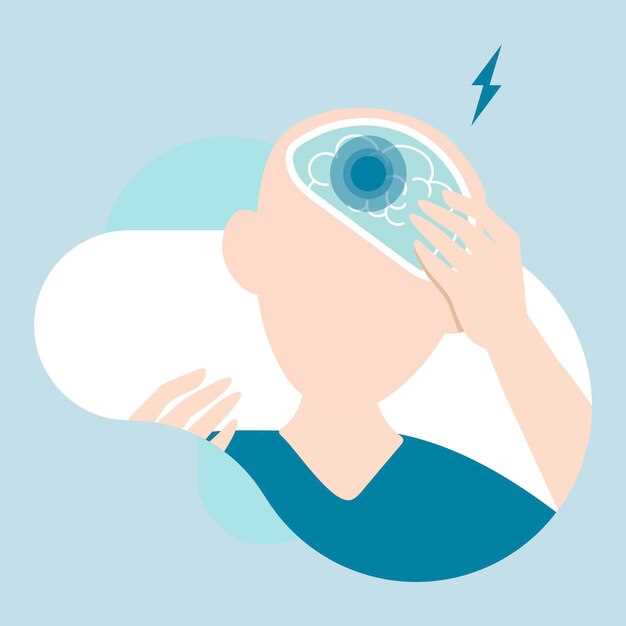
Discover a revolutionary approach to enhancing your mental prowess and maintaining optimal brain health. Our cutting-edge product is tailored to address the challenges associated with cognitive performance, encouraging improved memory, focus, and overall mental agility.
Nurture Your Mind
Experience a transformation in your cognitive abilities with our exclusive formula that targets the intricacies of brain function. By nurturing your mind, you can unlock the potential to overcome common challenges related to cognitive tasks.
Enhance Your Mental Clarity
Gain an edge in your daily life with our solution designed to boost mental clarity and sharpen your thought processes. Say goodbye to distractions and welcome enhanced focus and concentration, allowing you to accomplish tasks more efficiently.
Unleash Your True Potential
Unleash your cognitive potential and unlock new levels of success in various aspects of your life. Whether it’s excelling at work, studying for exams, or simply enhancing your overall mental well-being, our product is your key to unlocking a brighter future.
Understanding the Effects of Propranolol on Cognitive Function
In this section, we will explore the impact of a commonly prescribed medication on cognitive abilities. Propranolol, a widely used medication, is known to have an influence on memory and cognitive function. Let’s delve into the various ways in which Propranolol can affect memory.
Memory Implications of Propranolol:
Propranolol is a medication that possesses the potential to impact memory processes. It has been found to have diverse effects on cognitive performance, influencing memory formation, retention, and retrieval. The use of Propranolol may lead to alterations in the way individuals encode and recall information, resulting in memory changes.
Factors Influencing Memory Alterations:
Several factors can exacerbate memory difficulties arising from Propranolol use. It’s essential to understand these factors to mitigate the impact effectively. Age, dosage, duration of medication use, and individual differences contribute to the varying degrees of memory problems associated with Propranolol.
Managing Memory Problems:
While memory problems can prove challenging, several strategies can help individuals cope with these difficulties while taking Propranolol. Implementing lifestyle changes, engaging in memory-enhancing activities, and developing effective organizational techniques can improve overall cognitive function.
Tips for Enhanced Memory:
Enhancing memory can be achieved through adopting certain approaches that promote effective information processing and retrieval. Incorporating practices such as regular exercise, maintaining a healthy diet, practicing mindfulness, and engaging in memory exercises can significantly benefit individuals who are experiencing memory problems due to Propranolol use.
Memory Issues Linked to Propranolol
Propranolol, a widely prescribed medication, has been associated with certain cognitive difficulties that affect the recall and retention of information. As individuals make use of this pharmaceutical drug, they may experience specific challenges related to their memory and cognitive functions.
1. Impaired Learning Abilities
One of the memory-related issues associated with Propranolol is impaired learning abilities. This means that individuals taking this medication may find it more challenging to acquire new information or skills. They can experience difficulties in understanding and processing new concepts or retaining them in their long-term memory.
2. Reduced Attention and Focus
Another memory-related aspect associated with Propranolol is reduced attention and focus. This means that individuals may struggle to concentrate and maintain their focus on tasks or information for extended periods. This can lead to challenges in retaining and recalling details accurately.
3. Slowed Memory Retrieval
Individuals taking Propranolol may also experience slowed memory retrieval, which can impact their ability to retrieve previously learned information efficiently. This can result in difficulties in recalling specific details or events from their memory when needed.
- Distorted Perception of Time: Propranolol may also affect the perception of time, making it more difficult for individuals to accurately estimate the duration of events or tasks.
- Difficulty in Remembering Contextual Details: Propranolol may affect the capacity to remember contextual details related to memories, such as time, place, or environmental cues.
- Challenges in Recall Order: Individuals taking Propranolol may experience challenges in recalling the exact order of events, leading to difficulties in constructing an accurate chronological sequence of past events.
It is important to note that these memory-related issues do not affect everyone taking Propranolol. The impact may vary depending on individual factors, dosage, and duration of use. If you are concerned about these potential effects on your memory, it is advised to consult with your healthcare provider.
Factors Affecting Memory Function
When taking Propranolol, certain factors may contribute to changes in memory performance. Understanding these influencing factors can help individuals better manage their memory concerns.
1. Age
The impact of Propranolol on memory can vary depending on age. Older individuals may be more susceptible to memory difficulties associated with Propranolol usage due to age-related changes in cognitive abilities.
2. Dosage

The dosage of Propranolol can also influence memory function. Higher doses may have a greater impact on memory performance compared to lower doses. It is important to discuss with your healthcare provider the appropriate dosage for your specific needs.
Aside from age and dosage, other factors may also contribute to memory problems while using Propranolol. These include:
- Underlying Medical Conditions: Certain medical conditions may interact with Propranolol, affecting memory function. It is essential to inform your doctor about any existing health issues.
- Concurrent Medications: The use of other medications while taking Propranolol may impact memory performance. It is crucial to inform your healthcare provider of any other medications you are taking.
- Lifestyle Factors: Factors such as sleep deprivation, stress, and poor nutrition can also contribute to memory difficulties. Maintaining a healthy lifestyle can help mitigate these effects.
Overall, understanding the factors that may influence memory problems while using Propranolol can empower individuals to take proactive steps in managing their memory concerns. It is always recommended to consult with a healthcare professional for personalized advice and guidance.
Managing Cognitive Challenges
Dealing with cognitive challenges can be overwhelming, but there are various strategies and techniques that can help you mitigate these difficulties. By implementing effective management methods, you can enhance your mental abilities and navigate through daily tasks with greater ease.
|
1. Organization Keep your daily activities, appointments, and important information organized using tools such as calendars, planners, or smartphone apps. This will help you stay on track and ensure that you don’t forget important tasks or events. |
|
2. Prioritization Determine which tasks or activities are the most important or urgent and prioritize them accordingly. By focusing on key responsibilities first, you can allocate your cognitive resources more effectively and accomplish tasks in a timely manner. |
|
3. Mindfulness Incorporate mindfulness techniques into your daily routine to improve your concentration and attention. Engaging in activities such as meditation or deep breathing exercises can help calm your mind, reduce stress, and enhance your cognitive functioning. |
|
4. Memory aids Utilize memory aids such as sticky notes, reminder apps, or mnemonic techniques to assist you in remembering important information or tasks. These tools can be invaluable in compensating for any memory difficulties you may be experiencing. |
|
5. Mental stimulation Engage in activities that stimulate your brain, such as puzzles, reading, or learning a new skill. Regular mental stimulation can enhance your cognitive abilities, strengthen your memory, and help counter any challenges you may encounter. |
Implementing these strategies in your daily life can significantly improve your ability to manage and overcome cognitive challenges. By adopting these techniques, you can enhance your overall cognitive well-being and lead a more fulfilling and productive life.
Tips for Improved Memory

In this section, we will provide you with valuable suggestions and techniques to enhance your cognitive abilities and optimize your memory performance. By employing these practical tips, you can experience a notable boost in your ability to recall and retain information, facilitating a more efficient learning process and a sharper mental edge.
1. Mnemonic techniques: Utilize mnemonic devices such as acronyms, visualization, or chunking to organize and remember information effectively. These methods leverage associations, patterns, and vivid mental images to aid in encoding and retrieval.
2. Regular physical exercise: Engaging in regular physical exercise not only benefits your overall health but also enhances cognitive abilities, including memory. Physical activity stimulates blood flow, promotes neurogenesis, and improves cognitive function.
3. Adequate sleep: Ensure you get sufficient sleep, as sleep deprivation can impair memory and cognitive performance. Quality sleep allows the consolidation of newly acquired information, optimizing memory retention and retrieval.
4. Balanced diet: Maintain a well-balanced and nutritious diet that includes foods rich in antioxidants, omega-3 fatty acids, and vitamins. These essential nutrients support brain health and contribute to optimal cognitive function.
5. Mental stimulation: Keep your mind active by regularly engaging in activities that challenge and stimulate your brain. Puzzles, crosswords, reading, learning new skills, and engaging in intellectually stimulating conversations are helpful in improving memory performance.
6. Stress management: Chronic stress can have a detrimental impact on memory and cognitive abilities. Employ stress management techniques such as meditation, deep breathing exercises, or engaging in relaxation activities to alleviate stress and optimize memory function.
Remember, by implementing these tips into your daily routine, you can enhance your memory and overall cognitive abilities, leading to increased productivity, efficiency, and mental sharpness.
